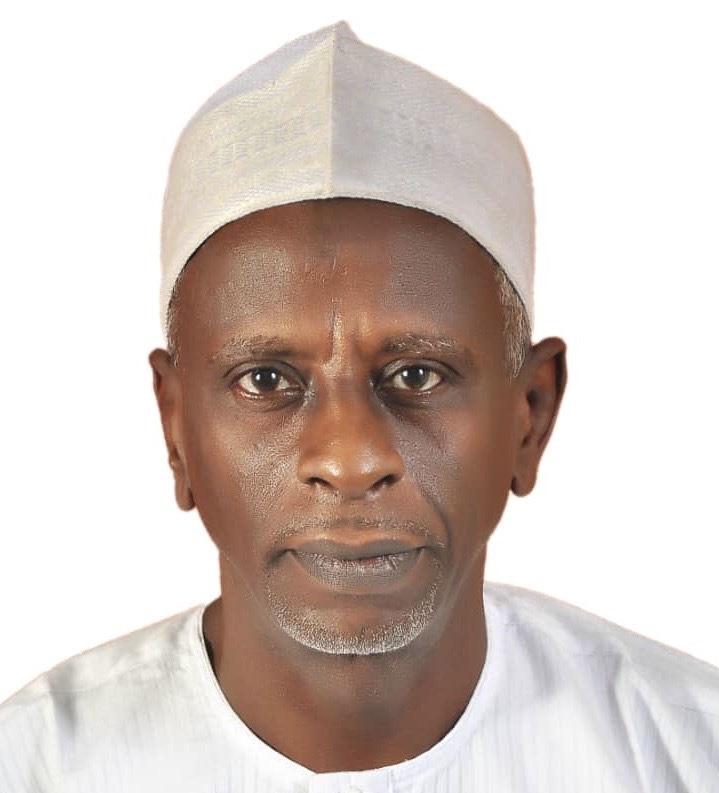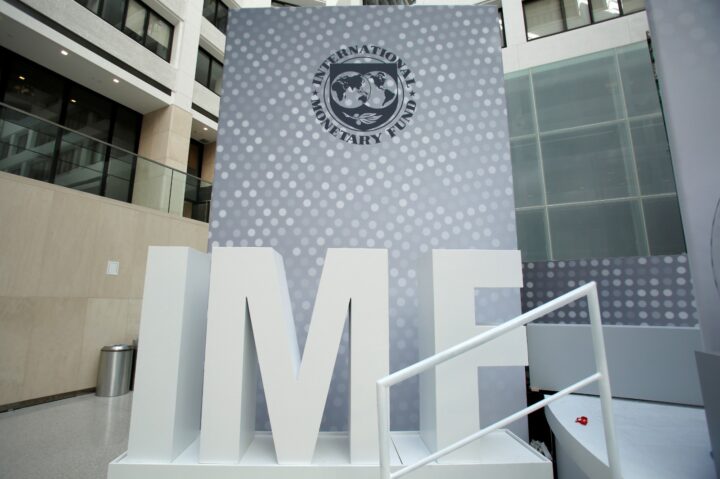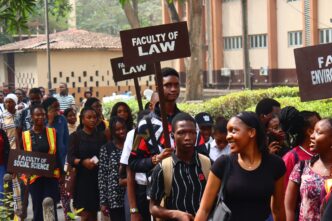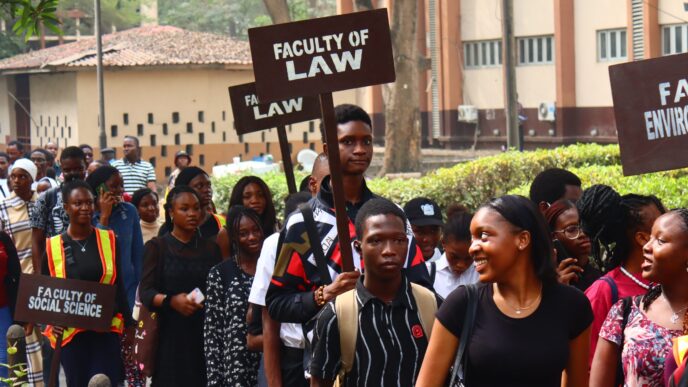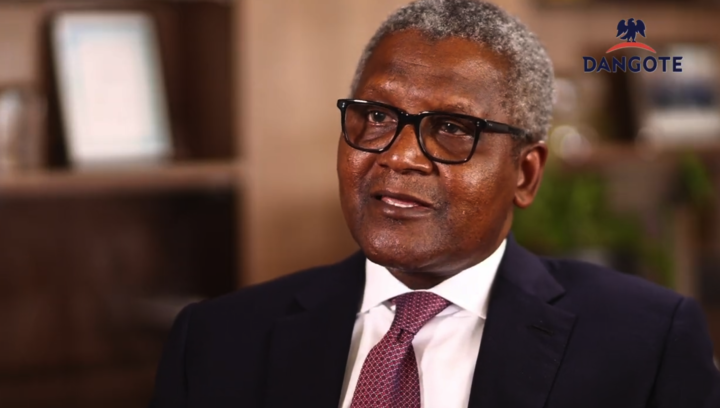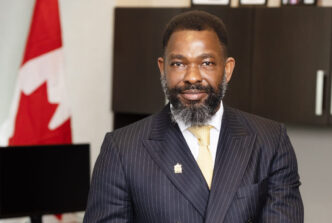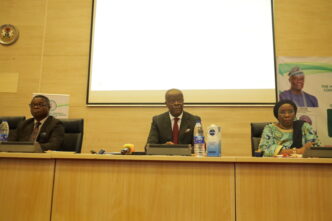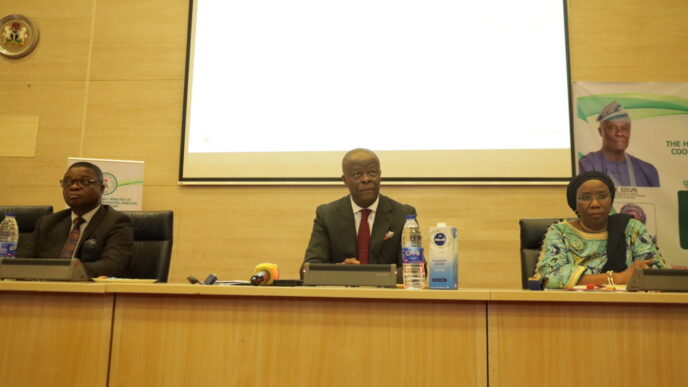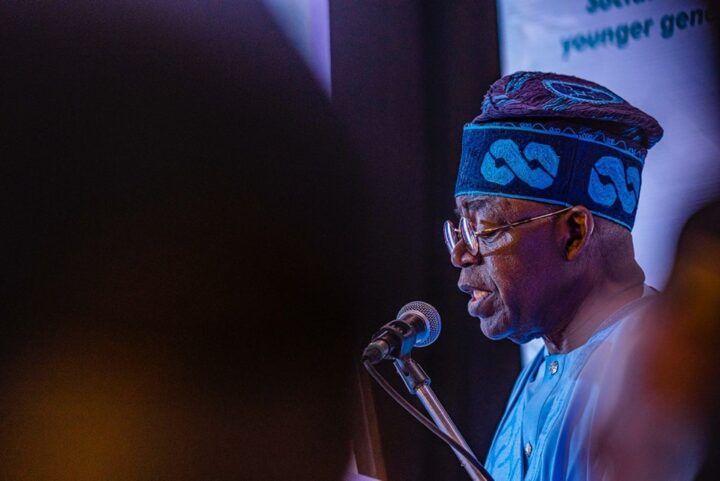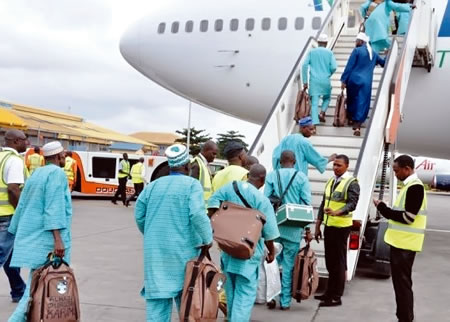“Imperialism is a system of exploitation that occurs not only in the brutal form of those who come with guns to conquer territory. Imperialism often occurs in more subtle forms; a loan, food aid, blackmail. We are fighting this system that allows a handful of men on earth to (unjustly) rule all of humanity.” Thomas Sankara, former President of Burkina Faso
The minister of women’s affairs, Uju Kennedy-Ohanenye, recently raised a red flag that Nigeria will ignore to its perpetual peril. Following the standoff between her and the national assembly, she alleged the real cause of her harassment by the lawmakers was her refusal to sign a $500 million World Bank (WB) loan request. Her reason: “All the loans they collect, including World Bank loans, are you aware that the same World Bank staff in Nigeria take back 40 percent and call it consultation fees? Why should anybody give us a loan and you still direct us how to use the loan?”
In an interview with THISDAY, Kennedy-Ohanenye said, “Now my life is at stake because I refused to sign the $500 million loan. Let me tell you, if I sign that loan today, I’m entitled to five percent of the money but I refused to sign. And that 40 percent they take is a secret, I found it out. It is part of why the national assembly and all of them are after me.” She also claimed to have objected to another multimillion-dollar loan meant to train women on how to save money, saying “I told them $100 million is too much to use to teach our women how to save money. We can teach them. Let them bring the $100 million and give it to those women and use it to know what to do with their lives.”
With such sleazy exposés, it should seem only a matter of time before Nigeria and other African countries completely throw off the obnoxious yoke of the International Monetary Fund (IMF) and the World Bank (WB), the two institutions instrumental to their impervious and ever-escalating poverty indexes. Indeed, the wonder is that it is taking this long for the citizens to conclude that the corrupt parochial prescriptions and lopsided operations of these busybodies are responsible for their pains and penury in the midst of plenty. It’s a classic case of you cannot fool all the people all the time.
Advertisement
For Nigeria, the realisation has been long in coming. Ever since the General Ibrahim Babangida regime collected its initial IMF loan of $1 billion in 1986, its economy has been largely run under the dubious dictates of the brutal Bretton Woods institutions. Devaluation, deregulation and liberalisation as conditions for the Fund’s facilities over the past four decades have seen to the total pauperisation of populaces in the richest country on the continent. There are now over 133 million people or 63 percent of Nigerians wallowing in multidimensional poverty; 20 million out-of-school children and the world’s second highest maternal mortality rate. As with a vicious circle, these indices of misery create even more crises, especially chronic insecurity.
This past year, the engineered exploitation of the economy has attained an all-time peak. Acting on the IMF/World Bank script minutes after his swearing-in on May 29, 2023, President Bola Ahmed Tinubu removed what was left of fuel subsidies, and rapidly followed this by fully floating the Naira, hiking interest rates, import duties and electricity tariffs. The results: runaway inflation of up to 34 percent; food inflation of 40 percent and youth unemployment rate now close to 50 percent. The cost-of-living crisis is currently such that even the employed cannot afford accommodation, food, education, healthcare, transportation, utilities and other basic needs. Attempts by organised labour to negotiate a realistic minimum wage to cope with the over 300 percent rise in prices ended with the federal government offering a meagre N70,000 or the price of one bag of rice.
Meanwhile, reports of the destitute desperately dying in stampedes for sachets of spaghetti or similar pathetic palliatives are no longer news. Hunger and anger are more palpable than ever. The concomitant aggravation of insecurity especially in predominantly agrarian communities means even less productivity this farming season. Exacerbating food insecurity nationwide means communal clashes and violent criminality can only continue to escalate. At this point, even the security agencies are becoming demoralised and overwhelmed having lost over 500 military and paramilitary personnel over the past 10 months alone.
Advertisement
In the meantime, the ability of the federal government to intervene and curtail the horrific humanitarian disaster is being eroded by the day. According to the Central Bank of Nigeria (CBN), between January and March 2024, it spent about 70% of its dollar payments to service external debts. Thus, out of the $1.61 billion in total outflows made during this period, $1.12 billion was expended on servicing external debts. This figure represents a huge rise from 49% in Q1 2023, highlighting the growing burden of external debts on the nation’s finances.
Strangely, such scenarios have not scared the Tinubu administration from taking even more loans. The latest is the $500 million IMF facility recently approved by the national assembly for the importation of electricity metres! Since its assumption of office, the World Bank has also approved three loans for Nigeria totalling $1.95 billion. On June 19, 2023, the federal government secured a $750 million loan to facilitate power projects across the country. On June 27, 2023, the bank approved another loan of $500 million “for women empowerment programmes.” In July last year, the Senate approved a request by the president to borrow $800 million from the World Bank to help cushion the impact of high fuel prices.
These loans are the main reason why the value of the Naira plummeted from N460/$1 to over N1,500/$1 over the past 12 months. The IMF and World Bank conditions require both removal of subsidies and devaluation of currencies before any loan. The end result is to strengthen the greenback and enable the US to import important commodities like Nigeria’s high-quality crude oil cheaply. Of course, common economic sense says there is really no use in devaluing your currency unless you are a gross exporter while Nigeria is a net importer of almost all its basic needs including food, fuels, pharmaceuticals, machinery, etc.
The IMF/WB have been giving us the same painful prescriptions for 40 years that worsen our conditions but like an insane entity we are swallowing the exact same pills. So, why is an administration headed by an acclaimed accountant succumbing to such nonsense? Writing under the caption “Our President’s Love Affair with the IMF,” in the Nigerian Tribune of February 19, 2024, Lasisi Olagunju opined “Our presidency is by election and affirmation. Our votes are subject to affirmation by the kingmakers in London and Washington… As president he cannot and dare not choose advisers whose views are at variance with the kingmakers. They are the double monsters headquartered on Pennsylvania Avenue and H Street, Washington DC. No poor president has ditched the IMF and World Bank and slept well since the two were born in 1944. If you know you won’t sleep with them, do not take their money and power.” Let’s add: those who differ like late President Thomas Sankara of Burkina Faso quoted above suffer sudden death or at best dethronement.
Advertisement
The IMF and World Bank are clearly neo-colonial institutions designed to pillage Africa’s enormous resources, stultify her growth and pump the gains into the US and European economies. Else, why are these countries never offered similar recommendations? The UK last year paid almost £40 billion in energy subsidies; the US provided $15.6 billion for renewable energy subventions in 2022; France announced last year that it would continue subsidising citizens’ electricity bills into 2025 — all without even a whimper from the World Bank and IMF. Why are they not prescribing the same pills to these countries?
In an interview with Channels Television recently, Chief Femi Falana (SAN) said since there is no single country in the world where the government does not subsidise one product or the other, Nigerians must ask the federal government to discard the deleterious policies and programmes of these bodies. According to him, “The only economic body recognised by the Constitution to advise the President is the National Economic Council so why has that body abdicated its responsibilities to the IMF and World Bank? It is an ideological war. These institutions were set up by imperialists principally to destroy the economies of developing countries while they turn the other eye as Western governments are giving subsidies to their people.”
Realistically though, this imperialistic trend can only be stopped by a resounding rejection of these institutions by Africans relying on the peoples’ power. The continent has $3.5 trillion dollars of combined GDP, 100 billion dollars of remittances flowing in every year, a bulging youth population and almost half of the world’s vital natural resources. We don’t need the IMF and World Bank to grow; we need courage, discipline, resolve and unity. The compromised, clueless or cowardly leaders currently at the helm of affairs can only offer fragmented and uncoordinated resistance, if at all, while we keep going round in circles.
Hassan-Tom writes from Abuja.
Advertisement
Views expressed by contributors are strictly personal and not of TheCable.
